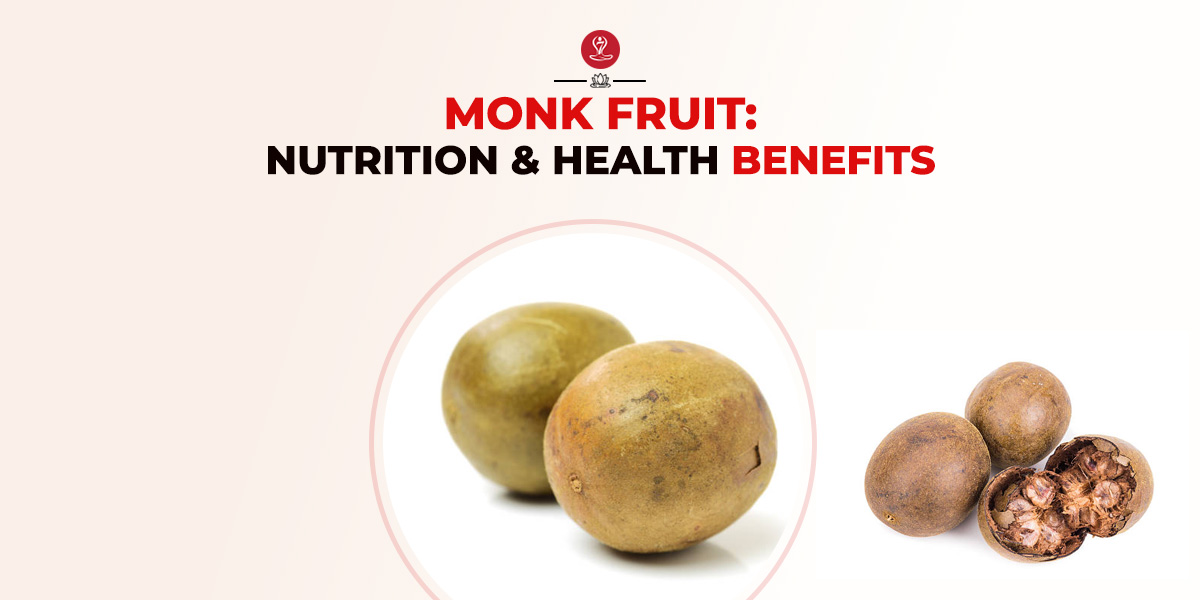
Monk fruit, also known as lo han guo or swingle fruit, is an herbaceous perennial vine of the gourd family, Cucurbitaceae. The fruit is native to southern China and is named after the monks who originally cultivated it. It has been used for centuries by practitioners of traditional Chinese medicine. In recent times it has also emerged as the best sweetener.
What is monk fruit?
it is a vine that belongs to the Cucurbitaceae family, also known as the gourd family. It is etymologically from China and Thailand. Monk fruit is famous for giving about 250 times the sweetness of sucrose.
Native to the ancient mountains of southern China, monk fruit has been grown in gardens and cultivated for hundreds of years. This plant is cultivated for the extract of its fruits, called Mogrosides. The extracted compound of Mogrosides is 300 times sweeter than cane sugar.
This fruit is being used for traditional Chinese medicine. But because of its sweetness, it has become popular worldwide. it gets its delicious, natural, low-calorie sweetness from antioxidants without all the calories of sugar.
due to its unique nutritional combination produces less oxidative stress, reduced the risk of obesity and diabetes, reduced inflammation, fatigue healing, and even a natural anti-allergy.
Till now it was cultivated only in China, but now its cultivation has been started in Palampur, Chamba, and Kullu located in Himachal Pradesh, India. Its testing has been done by the CSIR Institute of Himalayan Bioresources and Technology. After testing, cultivation of this fruit is being done at 7 places.
it is usually sold in powder form. Also, some brands offer it in liquid form.
Nutritional Properties of Monk Fruit
It packs a punch because it provides high nutrition and low calories, and contains a natural compound without raising blood sugar levels.
According to the USDA, 100 grams of monk fruit have the following nutritional properties:
Carbohydrates: 0 grams
Total Sugar Alcohols: 0 grams
Protein: 0 grams
Fat: 0 grams
Sodium: 0 mg
Calories: 0
Monk Fruit Sweetener contains almost zero calories. In addition, it contains insufficient amounts of fructose, glucose, and other components, making it a non-nutritive sugar substitute. Although monk fruit contains vitamin C, products made from extracts of the fruit do not have any minerals or vitamins.
Health Benefits of Monk Fruit
aids in weight loss
As noted in the Nutritional Properties section, it is low in calories and fat. Thus, the body digests and assimilates monk fruit differently than ordinary sugar. These factors can ultimately aid in weight loss in the long run.
fights inflammation
it has impressive anti-inflammatory properties, and the sweetening compound Mogroside also has anti-inflammatory properties. According to some studies, monk fruit has been used in TCM for centuries to make a warm drink that relieves sore throats and reduces phlegm.
beneficial for the digestive system
Eating this fruit keeps the digestive system healthy because it is rich in fiber, which helps in relieving constipation, indigestion, and gas problems in the stomach. By eating it, the stomach becomes clean and the body also remains healthy.
No fluctuations in blood sugar levels
The problem with many sweeteners is that they affect blood sugar levels, which can be harmful to diabetics. On the other hand, according to research, it does not contain any substance that can affect blood sugar levels, and consuming it daily in appropriate amounts does not cause any harm to your body. But, be cautious when choosing it extract-based products as they may contain sugar or sucrose and other flavoring additives.
Know about monk fruit sweetener
One popular sweetener is Monk Fruit Sweetener, a zero-calorie sweetener. It consists of natural sugars, mainly fructose, and glucose. It is high in unique antioxidants called Mogrosides, which impart intense sweetness.
This fruit is a great natural alternative to sugar for diabetics, as it does not increase the blood sugar level. Monk fruit sweetener is made from its extract after drying this fruit, which is 250 times sweeter than table sugar/sucrose. You can use it as a great alternative to sugar. It contains zero calories and absolutely no carbohydrates and is believed to have antioxidant properties.
Conclusion
Monk fruit sweetener has zero glycemic indexes, which is healthy for diabetic patients. Not only this, but this sweetener also does not cause cavities. It also contains anti-inflammatory compounds and antioxidants. This fruit sweetener is not absorbed by the body. It is emitted without changing. When a diabetes patient consumes monk fruit sweetener, the Mogrosides present in it are used as prebiotics by the gut microbes, and the rest is excreted through urine.
RELATED ARTICLES
Nov 04, 2024
The Ultimate Guide to Juice Remedies for Common Ailments
Juice remedies can be a natural and effective way to address various common ailments, thanks to the vitamins, minerals, and[...]
Sep 02, 2024
Tiny Fruits, Big Impact: Why Berries Should Be Your Go-To Snack
Berries might be small in size, but they pack a powerful punch when it comes to health benefits. Alongside health[...]
Jul 12, 2024
Key Lime Benefits: Boost Immunity, Skin Health, and More 🍋
Revitalize your health with the incredible benefits of key lime! Packed with nutrition, beauty perks, and overall well-being, key limes[...]
RECENT POSTS
Disclaimer
The content is purely informative and educational in nature and should not be construed as medical advice. Please use the content only in consultation with an appropriate certified medical or healthcare professional







